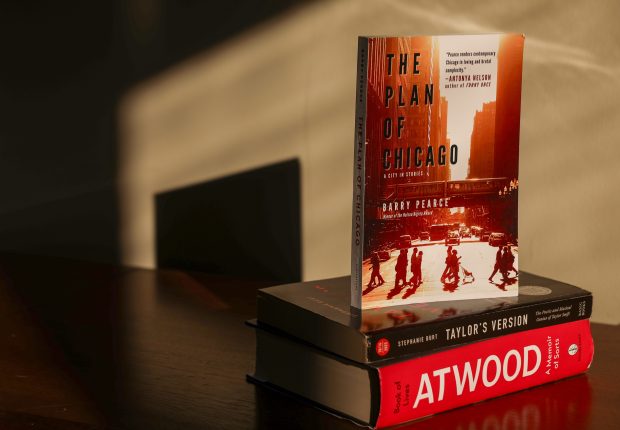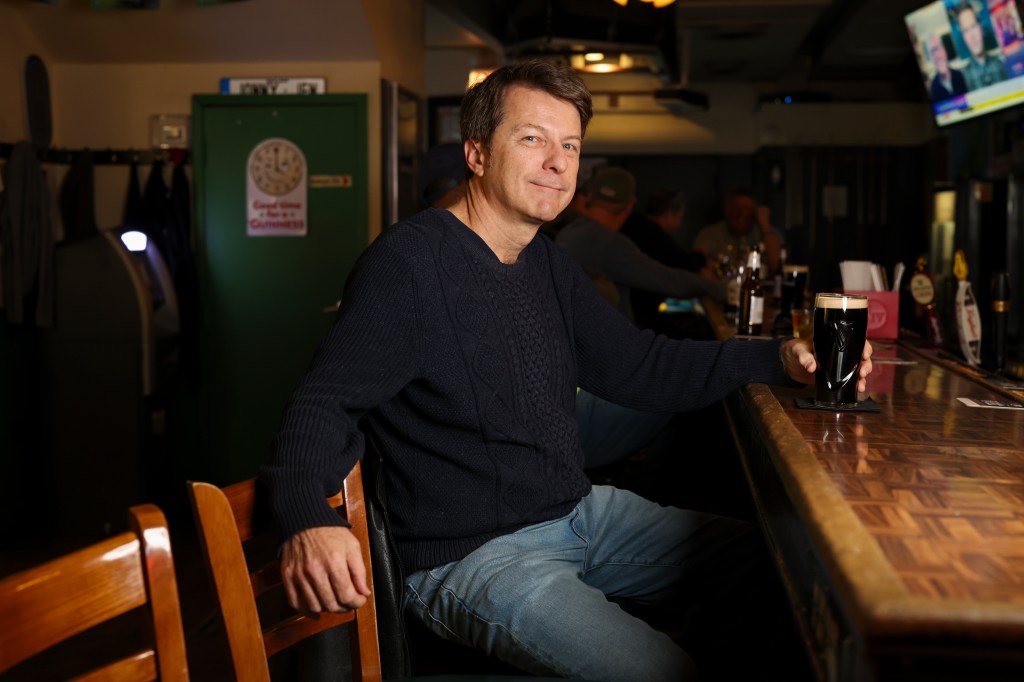In 2019, when his short story “Chez Whatever” was chosen from more than 3,000 entries for a top literary prize, writer Barry Pearce was understandably pleased. The Nelson Algren Award for short fiction, presented by the Tribune, came with a substantial check ($3,500) and a quick blast of notoriety (a story in the paper).
“My friends, fellow writers many of them, were even more excited than I was,” he said. “They were telling me, ‘This is it! You’ve made it! All sorts of agents and publishers will be calling you.’ Well, that never happened but the prize was great validation and it certainly gave me the burst I needed to get this book into print.”
This book is his “The Plan of Chicago: A City in Stories” (Cornerstone Press), a stunning collection that includes “Chez Whatever” and eight others.
It will formally debut at 1 p.m. Saturday with a party at Martyr’s. And it has received much advance praise. From Publishers Weekly: “Pearce’s prose exudes a solid sense of place, but the author’s real power lies in his ability to trace the emotional toll of his characters’ seemingly small but consequential decisions. It’s an accomplished and assured first outing.”
Though Pearce has been favorably compared to such local literary lions as Algren, Studs Terkel, Stuart Dybek and Sandra Cisneros, he is more than able to stand on his own, giving us a Chicago true to its time and troubles but also to its dreams. He takes many risks, writing in the voices of people of many races and places, ages and ethnicities, even as various women, creating a distinctive but familiar world, ever surprising and compelling.
 “The Plan of Chicago: A City in Stories,” by Barry Pearce. (Stacey Wescott/Chicago Tribune)
“The Plan of Chicago: A City in Stories,” by Barry Pearce. (Stacey Wescott/Chicago Tribune)
The book’s publication has created some new opportunities. One comes to newsstands or mailboxes soon, in the form of an essay as part of Chicago magazine’s December issues, its annual Chicagoans of the Year package.
Pearce was assigned by the magazine’s deputy editor, Stanley Kay, to write about Pope Leo XIV and he gives us a lively, humorous and knowing piece in which he writes, “A dash of machine savvy will come in handy as Leo rules over the world’s largest church, a job that would challenge even Old Man Daley’s powers or organization and patronage. Chicagoans, Catholic or otherwise, will watch with pride, confident Leo is looking out for us and ready to dole out the holy clout we might one day need.” He also writes that this “son of a schoolteacher and a librarian … understands poverty and racism, the strength of diversity, the pain of migration, and the dignity due all work.”
Pearce knows work. His father John was a carpenter who came here from Ireland with “just his bag of tools and a change of clothes” until being able to send back for his wife, June. They settled with one son in the South Shore neighborhood. There came more children (Barry would be the middle of seven kids, three older boys and three younger girls) and a home on the Southwest Side.
The older brothers would all work in the trades but Barry, after thriving at St. Laurence High School, would become the first member of his family to attend college, graduating with a degree in journalism from Northwestern University.
He then worked as a writer and editor for real estate publications here, exploring all areas of the city. Having fallen under the inspirational spell of Northwestern professor Robert Boswell’s “Reading and Writing Fiction” class and intrigued by the notion of pursuing masters degrees in creative writing, he found Boswell teaching graduate courses at New Mexico State University. Pearce would move and live there twice, earning a master of arts degree in 1997 and then again for a master of fine arts in 2015. He would also become good friends with another great Chicago writer, Rus Bradburd.
Pearce taught as an adjunct professor at local colleges. He submitted his short stories to various publications and saw them on the pages of many. He began to earn a living in the ghostwriting world, collaborating on nearly 20 books, most about the business world.
He has lived for some time in the Lincoln Square neighborhood, for many of those years with his girlfriend Julie, a therapist in the community health field. His stories remain firmly tied to the city, and he tells me that he now has “a bunch of pages” that might one day turn into a novel. “It’s about an Irish family with seven kids. … For all the divisions that exist here, violence, race … I still see possibilities for connection, glimmers of hope.”
